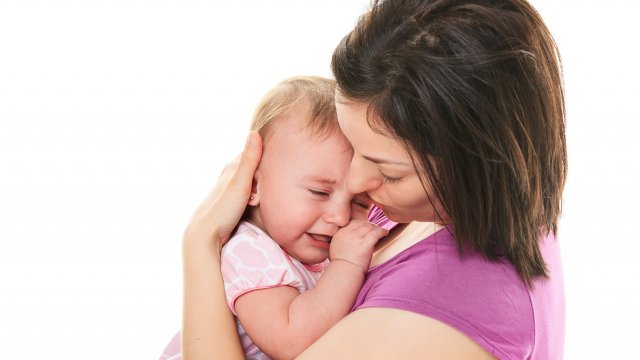As your child begins to recognize that you are not always there by his side, he may start to experience anxiety. We tell you how to soothe your baby’s fears.

For the first 7 months of his life, you’ve done everything for your baby. Your child, in turn, has assumed that the two of you are one and the same. But now he’s beginning to recognize his separateness and realizes when you aren’t in the room that he misses your warmth and comfort. This means your baby is starting to grasp the concept of “object permanence”-the idea that objects and people continue to exist even when he can’t see them. He is also beginning to wonder what will happen to him when you are not around. This triggers the development of two perfectly normal fears: a fear of strangers and a fear of being separated from you.
The first sign of this major cognitive milestone will be an anxious reaction to unfamiliar people. Although a few babies seem to skip this phase, most of them develop some anxiety that can continue up until 2 years of age. Far from something to be concerned about, stranger anxiety can be a sign of a healthy attachment to a primary caregiver, which is essential to emotional development.
To soothe your baby’s fears and minimize bad reactions during this stage, gently introduce her to new situations and people while also reassuring her that everything is okay. If she protests a friendly advance from an outsider (even a seldom seen grandparent falls into this category), explain politely to the person that your baby needs some time to get used to him or her. Let the person speak to your baby while she’s secure on your lap or in your arms, and eventually she may let the visitor hold her. If your baby is still not comfortable, however, respect her wishes. Keep in mind that, like adults, infants have their own temperaments and levels of sociability. Let her make friends at her own pace, and never force her to go to someone if she doesn’t want to.
Soon afterward, your child’s stranger anxiety will evolve into full-fledged separation anxiety, which then peaks between the ages of 10 and 18 months. Treat his dread that you’ll abandon him as real (it certainly is to him). Take your baby around the house with you wherever you go. If you must leave him for a few minutes (only in a crib, playpen, or play yard), first help him get used to the idea and ease his fears by playing peekaboo or another hide-and-seek game that reminds him you’ll be back. Don’t ever try to sneak out of the room (or the house) when your baby isn’t looking, or he’ll become more afraid than ever to let you out of his sight.




